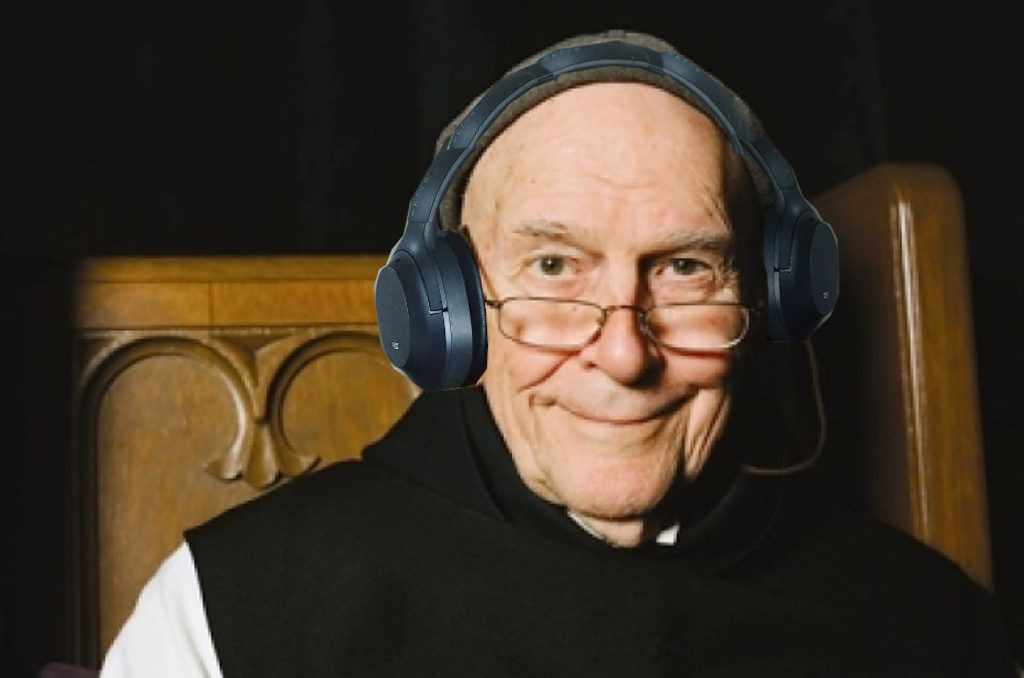For the last couple of weeks, I’ve had the chance to spend some time with the young people offering themselves for a year of service through the Blue Ridge Service Corps. Their time in Western North Carolina is spent living in community, working in organizations that promote social justice, and reflecting on their spiritual journey. One of the things I wanted to offer is a practice of contemplation that might serve their reflections and draw them into a more conscious contact with the divine. And I wanted that to be accessible in a particularly Christian paradigm.
That’s not to say that contemplative practices from faith traditions other than Christianity do not have value. They clearly do. So much of our current awareness of the efficacy of meditation comes from Buddhist practice, which has been of tremendous benefit to countless people in Eurocentric cultures, not to mention many, many more in the areas where Buddhism first emerged. For better or worse, however, I find myself always wanting to know more, to go deeper, to understand the tradition out of which a practice grows in order to more fully immerse myself in that practice.

Not that I’m alone in this pursuit, or that others in Eurocentric cultures haven’t done faithful work in exploring traditions that originated in other cultures and even brought their work into the cultural conversation that I am a part of. My struggle is more that so many of those efforts are still, in essence, works of translation. No matter how good the translation or the translator, there is bound to be piece missing which would naturally be present for one born into that particular culture. And through no fault of my own, the cultural conversation I was born into is Eurocentric and largely Christian. So where to find a contemplative practice in my native tongue?
Well, lots of places it turns out, but one that I’ve become particularly attracted to was described by Fr. Thomas Keating as Lectio Divina. Now, if you have heard the term Lectio Divina, there is a better than even chance that you associate it with a way of reading scripture that was introduced by the African Delegation to the Lambeth Conference of Anglican Bishops in 1998. This is a method of group bible reading in which the scripture is read three times. It bears a strong relationship to the process laid out by Fr. Keating, especially in that the goal of both is to foster reflection, contemplation, and prayer, rather than a critical evaluation of scripture like one might do in a bible study. But the two approaches to Lectio Divina are not identical.
The process of Lectio Divina, or “Divine Reading” that Fr. Keating describes involves four steps:
- Lectio – Reading a scripture passage with “the listening ear of your heart,” and asking “what word or phrase captures my attention?”
- Meditatio – Reflecting on and savoring that word or phrase and asking “how does this speak to my heart?”
- Oratio – Articulating in a spiritual sense (call it prayer, if you like), the thanksgivings, petitions, questions, and praise that arise from reflection.
- Contemplatio – Trusting that the divine presence has drawn near and heard our prayer, we rest in that presence, “being with” God in that moment.
This is, in many ways, not so far off from other meditation or mindfulness practices, and I appreciate how it incorporates Christianity’s belief in the divine’s concern for humanity in general and each individual particularly.

Nor do I think this practice is dependent solely on use of scripture (although the role of scripture in the Christian tradition makes it a particularly fertile space for Lectio Divina). When I allow myself, I can experience listening to music in much the same way. I recently picked up a nice re-issue of Jimi Hendrix’s “Axis : Bold as Love” and totally had a moment with “Up from the Sky” that went from Lectio through to Contemplatio in less than the 2 minutes and 55 seconds of the song. Some music may be better suited to this than another, but I suggest that we draw that circle way more tightly than it needs to be and by looking more far afield, we’ll find more opportunities to move through the Lectio Divina process with music. Or maybe for these purposes, we should call it Audio Divina?

For example, on Monday of this week, I sat with the young adults of the Blue Ridge Service Corps and talked a little bit about the week’s gospel reading. A tough nut, to say the least, but one worth cracking. One way in might be Jesus’ declaration, “Very truly, I tell you, unless a grain of wheat falls into the earth and dies, it remains just a single grain; but if it dies, it bears much fruit. Those who love their life lose it, and those who hate their life in this world will keep it for eternal life.” Even a foggy recollection of grade school Biology will remind us that seeds contain the essentials of new plants, but they have to essentially give up their being, slough off their coat, and allow the embryo inside to consume the endosperm in order to start a process that will, ideally, lead to a new plant and new fruit. Love that, right?
Sure we do, all except the dying part. And if we take it as an analogy of spiritual growth, there is in each of us a tender little shoot that wants to reach up to the light. There is also in us the resource needed to support that reaching. But often we’ve wrapped that tender thing up. We’ve coated it so that it doesn’t get hurt, sometimes for very, very good reasons. Yet how common is it to keep the protective coating in place even when the reason for it is gone? We can easily make a whole-ass personality out of the coating. Can we love the life inside enough to let the husk fall off? Or have we become so habituated to the coat that we’d rather keep it forever, as rigid and ugly as it has become, rather than risk uncovering the tenderness underneath?
So with those questions in the air (and with enough words prior to the point to make a recipe blogger blush) I offer you these four pieces of music as a companion through the process of Lectio Divina:
Lectio – What word or phrase captures my attention?
Meditatio – How does this word or phrase speak to my heart?
Oratio – What thanksgivings, petitions, questions, and praise have arisen that I want to articulate as prayer?
Contemplatio – Can I simply sit in the presence of the divine?
If it’s helpful, all of these tracks are collected in one playlist: